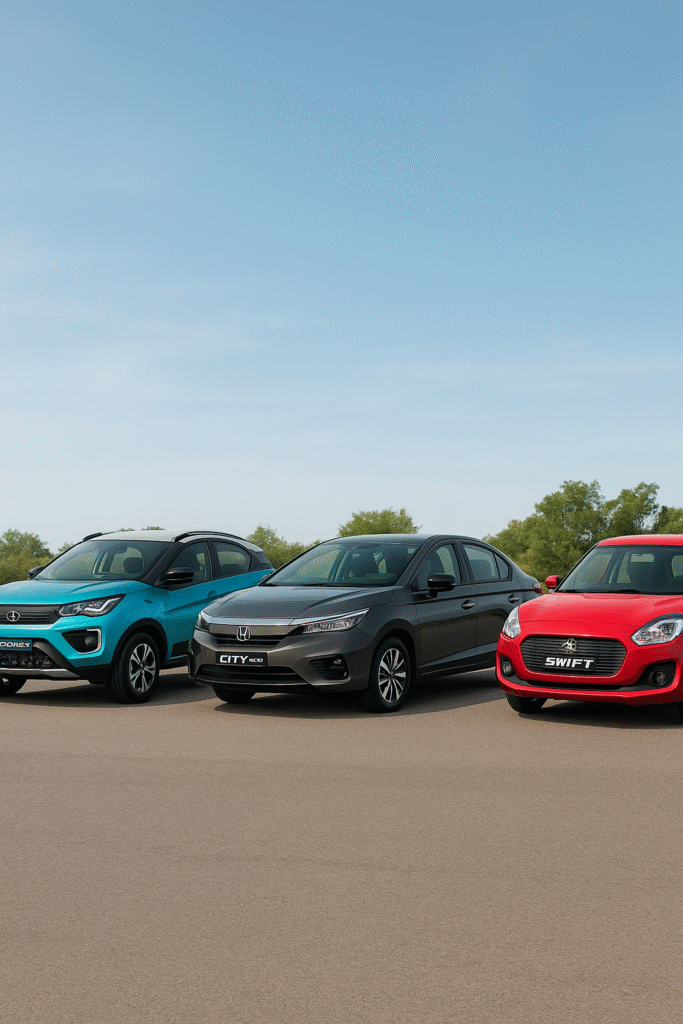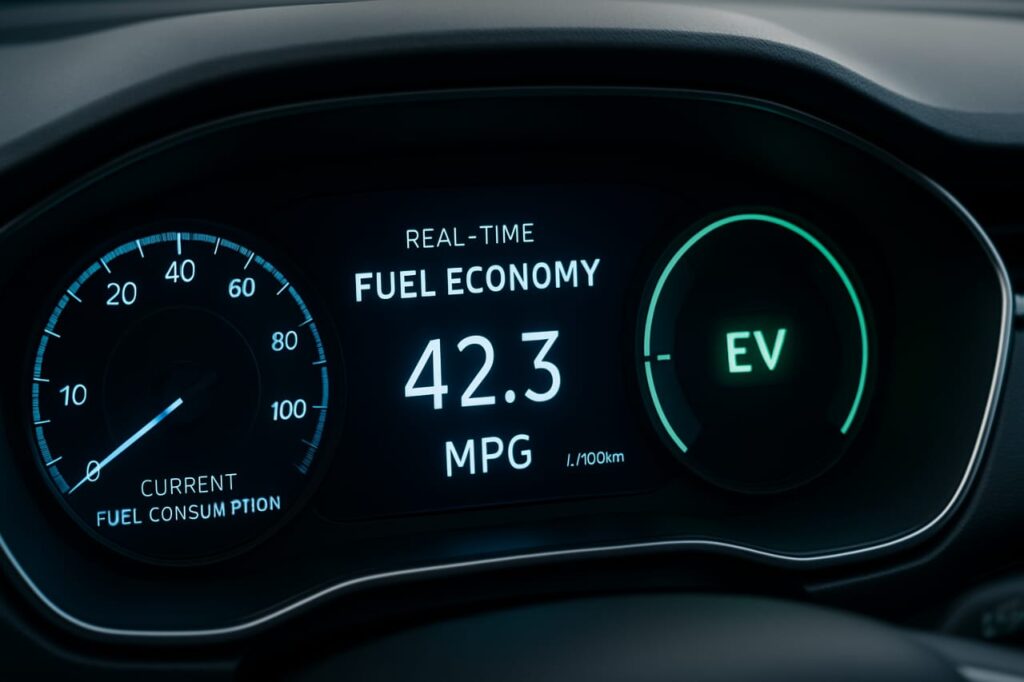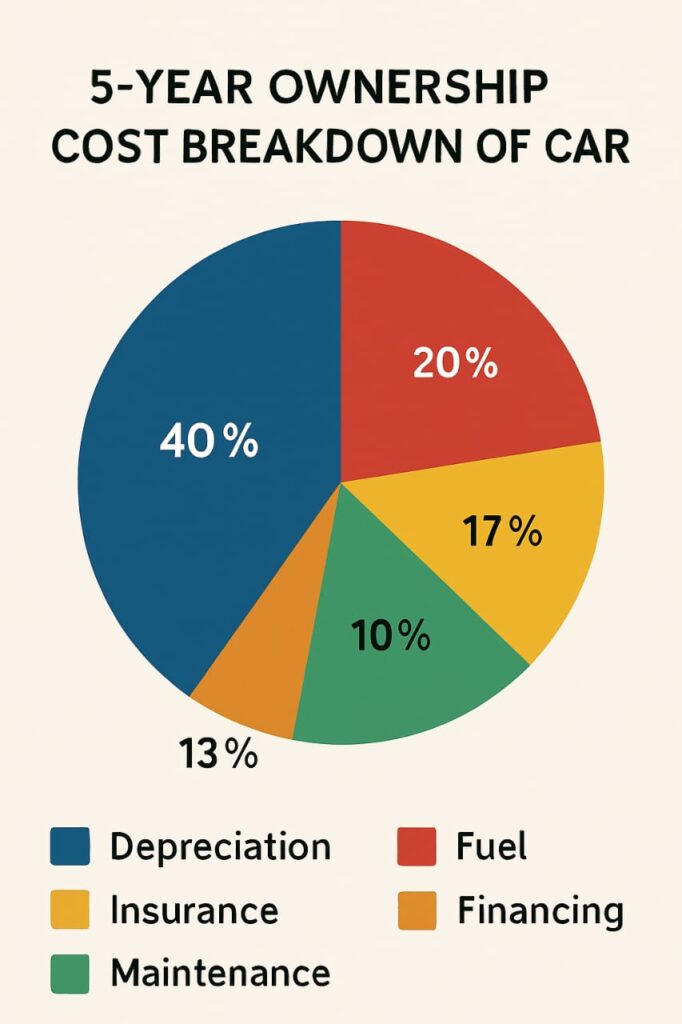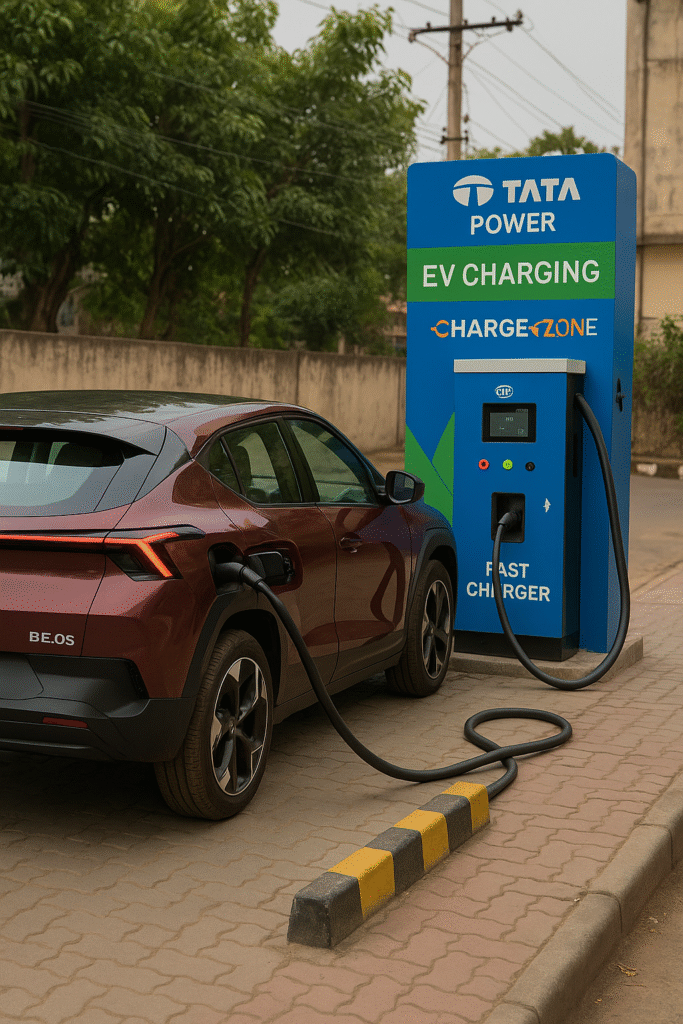
India’s automobile market is rapidly transforming, and car buyers now face a three-way decision: Petrol vs Electric vs Hybrid. While performance and sustainability are crucial, ownership cost remains the decisive factor for most Indian families.
In this blog, we deep-dive into real ownership costs of petrol, electric, and hybrid cars in India. From purchase price and fuel costs to maintenance and resale value—we break down everything you need to make an informed decision.
🚗 Introduction: Why Cost of Ownership Matters
In India, the debate of Petrol vs Electric vs Hybrid is more than just about technology—it’s about cost, convenience, and lifestyle.
The sticker price is just the beginning of your financial journey with a car. Ownership costs include:
- Initial purchase price
- Fuel/charging expenses
- Maintenance and servicing
- Insurance
- Government taxes and incentives
- Depreciation
With India’s high fuel prices, evolving EV infrastructure, and hybrid incentives, choosing between Petrol vs Electric vs Hybrid has never been more confusing—or more critical.
🚀 Maruti Suzuki Swift 2025 Launched: Complete Review, Features, Mileage & More
⚙️ 1. Purchase Price Comparison
| Car Type | Average Price Range (Ex-Showroom) |
|---|---|
| Petrol | ₹6 – ₹14 lakh |
| Hybrid | ₹12 – ₹30 lakh |
| Electric | ₹9 – ₹25 lakh |
Petrol Cars
- Entry-level and affordable
- Available in all segments
- Low upfront cost
Example: Maruti Swift, Tata Nexon (Petrol)
https://fame2.heavyindustry.gov.in/
Electric Vehicles (EVs)
- Higher upfront cost due to battery
- Falling prices with government subsidies
- 5% GST (vs. 28% for petrol/diesel)
Example: Tata Tiago EV, MG Comet EV
Tata Curvv EV vs Mahindra BE.05: Ultimate EV Showdown for 2025
Hybrid Cars
- Most expensive upfront
- Premium brands dominate
- Offer fuel efficiency and smooth driving
Example: Toyota Hyryder Hybrid, Honda City e:HEV
When comparing Petrol vs Electric vs Hybrid vehicles, it’s essential to look beyond fuel prices and examine real-world data.

🔋 2. Fuel vs Charging Costs in India (Petrol vs Electric vs Hybrid)
Let’s break down fuel and charging expenses over a typical usage of 12,000 km/year.
| Type | Average Fuel Rate (2025) | Mileage (km/l or km/kWh) | Annual Fuel Cost (₹) |
|---|---|---|---|
| Petrol | ₹106/litre | 18 km/l | ~₹70,667 |
| Electric | ₹8/kWh | 8 km/kWh | ~₹12,000 |
| Hybrid | ₹106/litre | 24 km/l | ~₹53,000 |
Key Observations:
- EVs offer 80% lower fuel costs than petrol cars.
- Hybrids save ~25% in fuel vs petrol.
- However, EV efficiency may drop in cold/hot weather or highway drives.
🛠️ 3. Maintenance Costs: What to Expect (Petrol vs Electric vs Hybrid)
| Category | Petrol | Electric | Hybrid |
|---|---|---|---|
| Engine | Regular servicing | Minimal (no oil) | Engine + battery care |
| Battery Cost | N/A | High (after 8 yrs) | High (dual system) |
| Annual Cost | ₹7,000–₹10,000 | ₹2,500–₹4,000 | ₹9,000–₹15,000 |
Petrol Cars
- Require oil changes, clutch replacements
- More moving parts = more wear and tear
Electric Vehicles
- Fewer moving parts
- Lower service costs
- Battery replacement cost high (₹3–₹7 lakh)
Hybrids
- Dual system complexity
- Costlier repairs
- Fewer mechanics specialized in hybrids
Tip: EVs shine in urban conditions, where low-speed, stop-and-go traffic helps with regeneration and efficiency.
🚗 Top Cars Best Suited for Hilly Roads of Northeast India
🛡️ 4. Insurance & Road Tax Differences (Petrol vs Electric vs Hybrid)
Insurance:
- Petrol cars: ₹15,000–₹25,000/year
- EVs: Often 15% cheaper premiums
- Hybrids: Highest due to high value and complexity
Road Tax & Subsidies:
- EVs: Exempted or reduced in many states (Delhi, Gujarat, Maharashtra)
- Hybrids: No special incentives
- Petrol cars: Regular taxation slabs
💡 Did you know? Under FAME-II scheme, EV buyers get up to ₹1.5 lakh subsidy, with added state-level perks.
🧾 5. Resale Value: Who Holds Value Better (Petrol vs Electric vs Hybrid)?
| Category | 5-Year Resale % | Market Demand |
|---|---|---|
| Petrol | 40%–50% | High demand, stable |
| Electric | 30%–45% | Increasing demand |
| Hybrid | 35%–50% | Niche, but gaining |
- Petrol cars have established resale networks.
- EV resale depends heavily on battery life and brand.
- Hybrids often depreciate faster due to limited demand and awareness.
📊 Real Ownership Cost Breakdown (Over 5 Years)
| Type | Total Ownership Cost (Approx) |
|---|---|
| Petrol | ₹9.5 – ₹12.5 lakh |
| Electric | ₹8 – ₹11 lakh (with subsidy) |
| Hybrid | ₹12 – ₹17 lakh |
Verdict (Part 1): For city users with charging access, EVs clearly win on total cost. Petrol cars still make sense for budget buyers. Hybrids offer a premium, balanced experience but at higher costs.
⚡ 6. Driving Experience & Range Anxiety: A Real Concern?
Another critical area where Petrol vs Electric vs Hybrid differ significantly is in the real-world driving experience across terrains.
When it comes to everyday use, driving dynamics, and long-distance convenience, each vehicle type offers unique experiences.
Petrol Cars
- Smooth, predictable power delivery
- Quick refueling (3–5 minutes)
- Widely available fuel stations
Electric Vehicles
- Instant torque and silent drive
- Regenerative braking adds efficiency
- Range anxiety remains for inter-city travel
- Average range: 250–450 km
- Charging time (home): 6–8 hours
- Fast-charging: 1–2 hours
Hybrid Cars
- Quiet, smooth operation in city traffic
- Switches seamlessly between petrol and electric modes
- No range anxiety — petrol tank always available
🚘 Verdict: Petrol wins for remote travel. EVs dominate city drives. Hybrids balance both worlds.
🔌 7. Charging & Fuel Infrastructure in India
Charging Infrastructure for EVs:
- Over 11,000+ public charging stations (as of mid-2025)
- Government target: 50,000+ stations by 2030
- Charging stations found in:
- Shopping malls
- Tech parks
- Metro stations
- Highways (under Bharat EV Fast-Charging Corridor)
Challenges:
- Inconsistent rural coverage
- Apartment dwellers face installation hurdles
- Standardization issues (CHAdeMO vs CCS)
Petrol/Diesel Infrastructure:
- 80,000+ fuel pumps nationwide
- Ubiquitous even in Tier-III towns
Hybrid Cars:
- Benefit from petrol stations
- No dependence on charging stations
🔋 External Resource: https://www.niti.gov.in/national-electric-mobility-mission-plan
🌿 8. Sustainability: The Bigger Picture
When evaluating Petrol vs Electric vs Hybrid, sustainability and environmental impact should not be overlooked.
EVs:
- Zero tailpipe emissions
- But battery production has carbon footprint
- Recyclability of lithium-ion batteries still maturing
Petrol Cars:
- Emit CO₂, NOx, and PM2.5
- Major contributor to urban air pollution
- Dependence on imported fossil fuels
Hybrids:
- Reduced emissions in city driving
- Still rely on petrol
- Limited electric-only range (~3–6 km in many models)
🌏 Verdict: EVs are the most future-proof and sustainable choice, provided clean electricity and recycling solutions evolve.

🧠 9. Which Type is Best for You? (Buyer Personas)
| Buyer Profile | Best Option | Why |
|---|---|---|
| City Commuter (Home Charger) | Electric | Low running cost, zero emissions |
| Highway Commuter | Petrol/Hybrid | Easy refueling, long range |
| Eco-Conscious Buyer | Electric/Hybrid | Lower carbon footprint |
| Budget-Constrained | Petrol | Lowest purchase cost |
| Luxury Seeker | Hybrid | Smooth ride, dual tech |
| Apartment Dweller (no EV infra) | Petrol/Hybrid | Convenience and flexibility |
❓ 10. Frequently Asked Questions (FAQs)
Q1: Are EVs really cheaper in the long run?
Yes. Lower fuel and maintenance costs make up for higher upfront costs in 4–5 years of ownership.
Q2: Do EV batteries need replacement every few years?
No. Most EV batteries last 7–10 years or 1.5 lakh km+. Brands now offer 8-year warranties.
Q3: Can I install an EV charger in an apartment?
Yes, but you need society approval. Govt mandates make it easier, especially in metros.
Q4: Which is better for resale: Petrol vs Electric vs Hybrid?
Petrol has mature resale networks; EV resale depends on battery condition and warranty.

🧮 Final Verdict: Real Cost Winner Petrol vs Electric vs Hybrid
| Feature | Petrol | Electric | Hybrid |
|---|---|---|---|
| Initial Cost | ✅ Low | ❌ High | ❌ Higher |
| Running Cost | ❌ High | ✅ Very Low | 👍 Moderate |
| Maintenance | ❌ Higher | ✅ Low | ❌ Higher |
| Range/Convenience | ✅ High | ❌ Moderate | ✅ High |
| Sustainability | ❌ Poor | ✅ Best | 👍 Better |
| Long-Term Ownership Cost | 👍 Balanced | ✅ Lowest | ❌ Highest |
🏆 Overall Cost Winner (City Use): Electric Cars
🏆 Best Balanced Option (Highway + City): Hybrid Cars
🏆 Most Budget-Friendly (Rural/Entry): Petrol Cars
So, whether you’re a tech-savvy urbanite or a cost-conscious commuter, understanding the Petrol vs Electric vs Hybrid equation is vital in 2025.
🧭 Conclusion: The Road Ahead for Indian Buyers
Choosing between Petrol vs Electric vs Hybrid isn’t just a technical decision—it reflects your budget, location, lifestyle, and values.
- Electric: Great for city dwellers with chargers and long-term vision.
- Petrol: Still king in rural or budget-constrained segments.
- Hybrid: Ideal if you want efficiency without charging dependency.
India’s future is electric—but the transition will take time. Until then, hybrid and petrol options will continue to serve millions.
✨ Pro Tip: Always calculate your Total Cost of Ownership (TCO) over 5 years, not just the showroom price!
